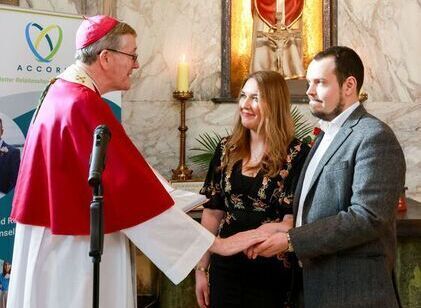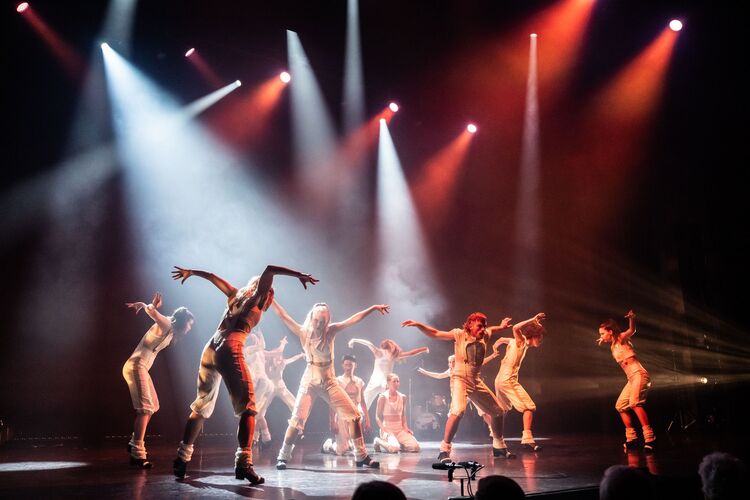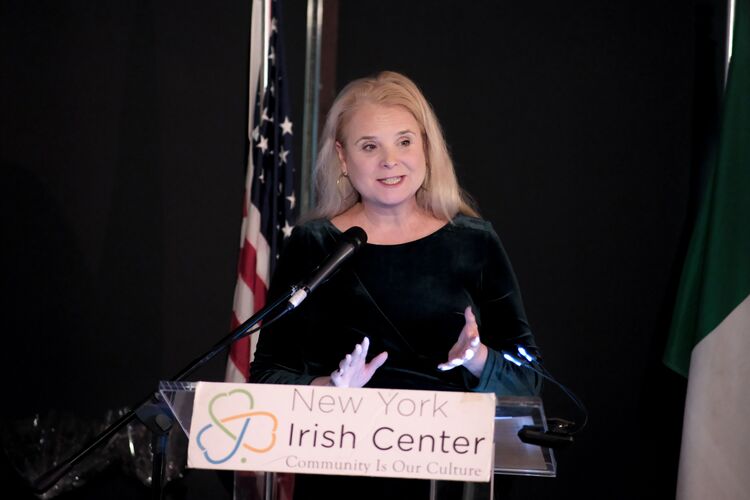Mark Kelly with a photo of his sister Carol Ann
By Irish Echo Staff
Intensely personal stories by and on behalf of plastic bullet victims marked the transatlantic launch of the report, "Plastic Justice." the launch took place on Saturday, October 24.
"Almost 1500 Hibernians, led by National Presidents Danny O'Connell and Karen Keane, viewed the webinar broadcast launch of the Relatives for Justice report, which documents how British state forces used plastic bullets to kill 17 Irish people with impunity," said AOH National Freedom for All Ireland Chairman, Martin Galvin
"Moving personal stories by three relatives of plastic bullet victims highlighted the launch," Galvin said.
"The event made public newly uncovered British secret documents, written just before and after one of the killings, which will now be used by legal representatives of the Downes' family in their court battle for an inquest," added Galvin.
And he continued: "Relatives for Justice Director Mark Thompson introduced the groundbreaking report, which collected all information on plastic bullet murders in one document, and outlined how the British treated victims as criminals or rioters to justify murders and cover-up for killers.
"He hoped the report would reinvigorate the campaign for justice for all 17 victims, and had invited the Ancient Order of Hibernians and Ladies Ancient Order of Hibernians to co-host the launch, because of their work in bringing legacy justice issues to Congress.
"Frances Meehan 's older brother Michael Donnelly had been a twenty-one year old college student, studying Sociology and a volunteer social worker with youth programs. On Sunday, August 10, 1980,there had been rioting and plastic bullets fired, because of Internment anniversary protests, and growing tension over the H-Block crisis in Long Kesh. Michael Donnelly did not know that plastic bullets had been fired earlier, as he walked to his parent's home.
"After he turned the corner he was shot at point blank range by a British trooper. Plastic bullets were then fired at neighbors who came out to assist him. When Michael Donnelly was finally placed in an ambulance, the ambulance was held by British troopers for 20 minutes, then stopped again and held for an additional 20 minutes by other British troopers. Michael Donnelly died shortly after his arrival in the hospital.
"Ms. Meehan said 'when the British Army or Royal Ulster Constabulary murder someone, they criminalize them to cover it up. Michael was called the ringleader of a riot.' Her father, a United States Army veteran and mother spent years fighting to get the truth. Both had their lives cut short by grief and heartbreak. She said that 'nothing will make our pain go away until we get the truth!"
"Mark Kelly described his sister Carol Ann Kelly as a 'twelve year old girl who loved life, was always happy and loved singing and dancing'. May 1981 was a tense month in which Bobby Sands, Francis Hughes, Ray McCreesh and Patsy O'Hara died on Hunger Strike. However May 19th was a beautiful evening and many of the children from their street had gone outside to play.
"Mark, thirteen, saw his twelve year old sister Carol Ann Kelly shot right outside their home. She had heard plastic bullets being fired and turned to come back inside, when she was shot in the back. No crown investigator bothered to speak to him or any eyewitnesses. Instead ,the next night British troopers fired plastic bullets into the windows of the Kelly home, then came inside and threatened the family. His father and mother were devastated and died without ever getting justice. Mark Kelly ended by holding up a photograph of Carol Ann smiling, then one of her lying in her coffin. He said that he 'would never forget Carol Ann or give up fighting for justice'.
"Brenda Downes said on August 12,1984, she 'went to an Internment Day march with her husband John and baby daughter. and little did she know that she would come away and John would be dead.'
"The march was peaceful, Gerry Adams had even asked the crowd to sit down in the streets to show there would be no violent resistance to the RUC. As soon as Martin Galvin was called to the platform, the RUC began an unprovoked and premeditated attack to punish the entire crowd. They killed John and injured many others.
"The RUC Chief John Hermon, held a formal press conference and claimed John Downes had been hit with a ricochet shot. Irish television then broadcast film showing that John Downes had been shot in the chest at point blank range by a RUC member Nigel Hegarty.
"Worldwide publicity forced the British to appear take action. Hegarty was cleared in a sham trial in which only pro-defense witnesses were called to testify. Brenda Downes was not told about the trial starting until reading it in a newspaper. John Downes' father was told there was no room for him in the courtroom. She ended by saying "thirty-six years later, the hurt has not gone away, the injustice has not gone away, but we have not gone away."









